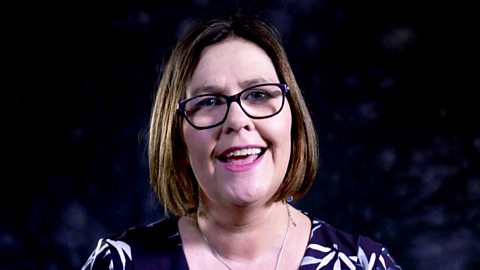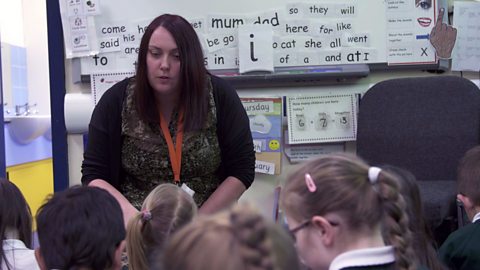
It doesnβt matter whether youβve been in the classroom for years or are new to the profession, the new school year brings a mix of emotions for any teacher.
Teacher and education blogger Victoria Hewett, a.k.a @MrsHumanities, shares her top tips for maintaining your wellbeing through the start of the new school year.
The beginning of a new school year is a flurry of activity; new students to meet, names to learn and routines to embed which can bring an air of excitement.
But then thereβs also the lesson planning, the paper work and the feeling of going from zero to light speed in no time at all which can induce a little stress and anxiety in all of us.
A little stress is good for the body, but too much can leave you feeling exhausted and burned out by half term. It is therefore important to look after yourself in the first few weeks and to maintain a healthy work-life balance.
Here are 5 points to think about to make sure you are looking after you once term starts.

1 - Pace yourself
The school year is like a marathon rather than a sprint, with a few hurdles thrown in.
There can be the temptation to try and get everything done as quickly as possible; you may have a new planner to organise, new lessons to plan, seating plans to create, displays to prepare as well as getting to know the students in your care and to teach those all-important lessons along with the resulting work to mark and assess.
It may seem tempting to stay up late or to stay a few extra hours to get it done, but you need pace yourself from the start of the year.
Avoid throwing all your energy into the first few weeks, leaving you longing for the half term by week three.
2 - Plan and Prioritise
To help pace yourself in the first few weeks, plan what you need to do along with what you want to do.
It can be useful to divide your time into period of fixed time (you have little to no control over what you do in this time) and flexible time (your time is yours to spend how you wish) and then prioritise tasks accordingly.
The Eisenhower Matrix is a useful tool for evaluating the importance and urgency of tasks, helping to prioritise those tasks that must be done, that can be scheduled for a later date, that can be delegated or simply deleted from the to-do list.
You simply canβt do everything that is expected of you or that you want to do work wise without it having an impact on your time somewhere else, plan the time you will spend working and prioritise what you will do in it.
3 - Personal time
When youβve had several weeks off from school, youβve rested, relaxed and are now feeling ready for the year ahead, it can be tempting to focus on work for the weeks that follow.
Remember to create plans for yourself; whether itβs time to exercise, to get pampered or to see family and friends, book it in early on so you have plenty of personal plans for the term ahead.
Once youβve got your plans organised, ensure you stick to them too and protect the βyouβ time youβve set aside. Perhaps get family and friends on board to hold you to account so youβre not tempted to cancel and continue working.
4 - Pick out the positives
As the days draw in, the weather turns a little chillier and youβve had a lesson that didnβt quite go to plan it can be easy to dwell on things, particularly the negatives.
Take some time at the end of each day or week to reflect on the positives that have occurred.
You may wish to write them down for future reference, discuss them with colleagues or just think about them in a space of reflection, whichever approach, take a few minutes to consider the successes and positives of your time in work to keep you motivated as winter creeps in.
Whilst you're thinking positively, consider how you can also take positive actions to manage and reduce your own workload.
Be proactive in seeking out and trying work-load reducing strategies, take time in the first few weeks to trial, evaluate and adapt strategies until you find what works well for you and your students. Then share those positive experiences with colleagues, it might just help them too.
5 - Peer assessment
Whilst on the topic of taking pro-active measures, consider embedding peer assessment into your classroom routines; it supports effective learning and workload reduction.
In the first few weeks of the new school year, take time to teach and embed peer assessment strategies such as proofreading, marking and feedback.
Students may need modelling and scaffolding to begin with but persist with it and by Christmas most of your students will be competent at it, meaning you have a feedback friendly classroom that reduces your workload and supports student progress.
Just be consistent, determined and set high expectations with it from day one and you and your students are sure to reap the benefits later on.
To conclude, ensure you take time for yourself in the first term.
After several weeks off it can be tempting to throw yourself into your work, but to maintain a healthy work-life balance you must take time to relax and recharge throughout the entire school year.
Ultimately it will benefit both you and your students.
Have a great start to the new academic year by looking after you.
If youβre a teacher in need of support, call free and confidential 24/7 emotional support helpline on 08000 562 561.
The ΒιΆΉΤΌΕΔ is not responsible for the content of external websites. By clicking the link to access the external website you will be redirected to a site controlled by Education Support. Please note that the ΒιΆΉΤΌΕΔ is not the data controller of the personal data you enter into the external website and it is not responsible for the services provided by any external organisation. When using an external website, you are subject to their Terms and Conditions and Privacy Policy.

Lessons in resilience: Earning your stripes. document
Dr Emma Kell β Teacher, Doctor of Education and author of 'How to Survive in Teaching', shares her top tips for developing resilience.

4 Ways to Say No. document
Here are our four top tips to help teachers say no and manage their workload and keep stress at bay.

Teachers open up about mental health. video
βI felt I was not good enough to be a teacher...β Teachers share their approach to managing their mental wellbeing in this short film.
